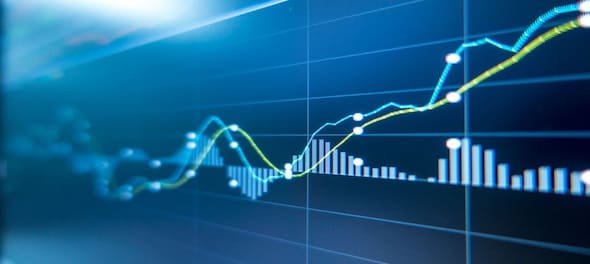
As the financial year 2023-24 nears its end, individuals adhering to the old tax regime must complete their income tax-saving investments by March 31, 2024. However, this year presents a unique challenge as the deadline coincides with a Sunday.
Live TV
Loading...
Additionally, stock markets are set to cease operations on Friday, March 29, 2024, in observance of Good Friday. With stock markets and mutual fund houses closed over the weekend, investors eyeing ELSS mutual funds must secure tax benefits under Section 80C by Thursday, March 28.
While banks will remain open on Saturday, March 30, 2024, investors may face delays in fund realisation and unit allocation, navigating through KYC procedures and bank holidays.
SEBI's guidelines stress the significance of timely fund crediting to the mutual fund bank house.
This is crucial for validating investments and aligning with market fluctuations to secure favourable Net Asset Values (NAV).
How to invest?
For investment strategies, experts advocate for a systematic investment plan (SIP) approach.
This approach builds discipline and mitigates cash outflow burdens.
Emphasising strategic timing, lump sum investments during market downturns are recommended over impulsive decisions.
Where to invest?
The recent performance data highlights returns from various funds over three years:
| ELSS fund | Three-year return (%) |
|---|---|
| Motilal Oswal ELSS Tax Saver | 27.4% |
| HDFC ELSS Tax Saver | 29.2% |
| Bank of India ELSS Tax Saver | 28.6% |
| Quant ELSS Tax Saver | 31.8% |
| SBI Long Term Equity | 33.5% |
(Source: Value Research; returns are as of March 12, 2024, with SIP initiation on the first of every month)
Notably, SBI Long-Term Equity Fund, the oldest scheme in the ELSS category, has consistently outperformed benchmarks over one-, three-, and five-year periods.
| Compounded Annualised Growth Rate (CAGR) performance | 1 year | 3 year | 5 year | Since Inception | |
| SBI Long-Term Equity Fund | 57.86% | 26.53% | 22.18% | 16.54% | |
| Scheme Benchmark: S&P BSE 500 TRI | 39.34% | 19.41% | 18.98% | NA | |
| Additional Benchmark: S&P BSE Sensex TRI | 24.51% | 15.21% | 16.48% | 13.39% |
(Source: SBI Mutual Fund)
However, investors should remember that while returns are important, they shouldn't be the sole factor in their investment decision-making process.
Here are the factors to consider when investing in ELSS:
Assess financial goals
Determine the investment objectives, whether it's long-term wealth accumulation, tax-saving goals, or a combination of both.
The goals will influence investment horizon and risk tolerance.
Understand ELSS
ELSS funds primarily invest in equities and offer tax benefits under Section 80C of the Income Tax Act, making them suitable for long-term wealth creation while saving taxes.
Evaluate fund performance
Review the historical performance of ELSS funds, considering returns over different periods (1-year, 3-year, 5-year, etc.).
Look for consistent performers with a track record of outperforming their benchmarks and peers.
Consider fund manager expertise
Assess the expertise and experience of the fund manager managing the ELSS fund.
A skilled and experienced fund manager can make a significant difference in fund performance over the long term.
Analyze fund portfolio:
Examine the composition of the fund's portfolio, including sector allocation, market capitalisation preferences, and diversification strategy.
Ensure that the fund's investment philosophy aligns with the risk profile and investment objectives.
Risk vs return
Evaluate the risk-return profile of ELSS funds. Higher returns often come with higher volatility and risk.
Consider the risk tolerance and investment horizon when selecting funds with an appropriate risk-return balance.
Expense ratio
Pay attention to the expense ratio of ELSS funds, which represents the annual fees charged by the fund house for managing the fund.
Lower expense ratios translate to higher returns for investors over the long term.
(Edited by : Amrita)
First Published: Mar 28, 2024 11:49 AM IST
Check out our in-depth Market Coverage, Business News & get real-time Stock Market Updates on CNBC-TV18. Also, Watch our channels CNBC-TV18, CNBC Awaaz and CNBC Bajar Live on-the-go!


'Rahul Gandhi deserted Amethi due to fear of Smriti Irani': How BJP plans to puncture Congress' UP plan
May 3, 2024 1:12 PM
'Don't be scared, don't run away', PM Modi tells Rahul for not contesting from Amethi
May 3, 2024 1:06 PM

